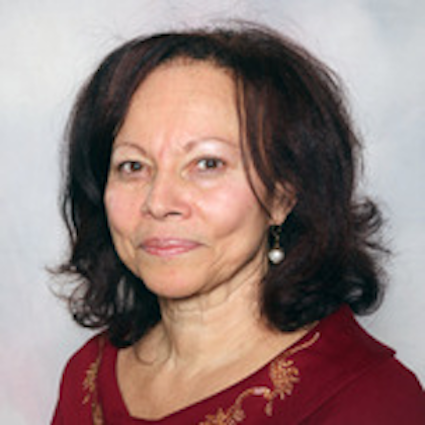Hardworking Vicky Rodrigues, Boston Association of School Administrators and Supervisors (BASAS), a school administrator and 18-year AFSA member (AFSA Local 6), is justifiably proud of her accomplishments. She immigrated to the United States speaking no English and put herself through school, became a special education educator, English-language learner (ELL) director and assistant head of school in Boston.
After she finished college, she decided to pursue education—specifically special education, where she worked for 12 years until being promoted to director of the bilingual program for ELL students, a position she stayed in for 17 years.
After working closely with students during these years, Rodrigues found herself as assistant headmaster, filling the position while her predecessor was on maternity leave. When the previous assistant headmaster chose not to return, she explained that the opportunity fell into her lap and that she has flourished in being able to support and guide students on their journey toward graduating.
“I am proud that 95% of students in my school go on to college,” she said. “College is a very important aspect for our students who are first generation [post-secondary students] in their families. As soon as students enter our high school, we work to expose them to college readiness.”
Rodrigues’s most defining moments in her career stem from helping students.
Within her role as headmaster, Rodrigues is the advanced placement (AP) and dual enrollment (DE) coordinator. She is also a member of the racial equity team, which focuses on ensuring there is equitable access and opportunity for students. She thinks institutional and structural imbalances are a major contributor to student failures.
“Within my realm of work, I try to provide equitable opportunities for everyone,” she said. “A major setback is when that doesn’t happen in the classroom.”
Rodrigues notes that it’s easy for students to fall through the cracks in a system as large as Boston. She is passionate about doing everything in her power to help students reach their full potential.
Something Rodrigues takes pride in and helps to further support her students is celebrating diversity. At a yearly fair, students are able to put on presentations about their country of origin and learn more about their peers and their cultures.
“Every year I host a multicultural day where students bring in artifacts, food, or a talent that highlights the country that they come from,” said Rodrigues.
For every success, there are difficult times as well. She, like many in the educational field, felt the hardships of COVID-19.
“The pandemic really highlighted the whole inequity that always existed through a deeper lens, and online learning only made things harder,” explained Rodrigues.
The pandemic brought to light additional support that students needed. To combat the crisis, Rodrigues worked on bringing in more counselors and advisory staff to support students’ emotional needs. She also was able to create programs to monitor attendance, as students have struggled to stay motivated to attend school. That work continues.
“My goal for this year is to put in place any educational support that will help students overcome the learning gap that has become even more apparent in urban schools since the onset of the pandemic,” said Rodrigues.

